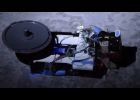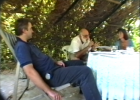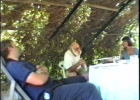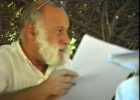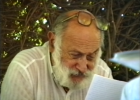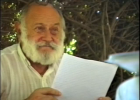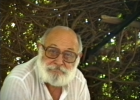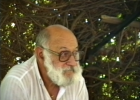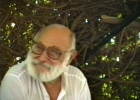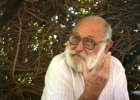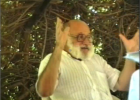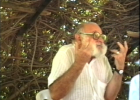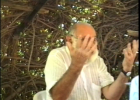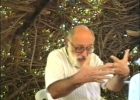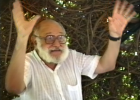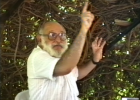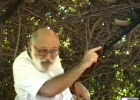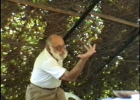Flusser Studies 17 - Double Issue / Thematic focus: Music
Interwiev with Sam Auinger. On Flusser, Music and Sound
Between Representation and Projection: Music in Vilém Flusser’s Work
According to Vilém Flusser, music has a logical-mathematical structure that corresponds to the basis of human thought in general. “Pure music,” supposedly free of language in the strict sense, exemplifies this point. By being independent of representation and figuration, “pure music” reveals the development of Western thought, which Flusser would also theorize through the decoding of letters into numbers. For Flusser, the mathematical structure of thought represented by the concept of “pure music” also leads to the advent of machines and apparatus, similar to the way the decoding of words into numbers brings forth the abstraction of calculation. Computers, for instance, can project worlds onto the human senses with equally creative possibilities. The proximity between music and calculation allows for an understanding of music in contrast with musicological or historical approaches. In this sense, music is an element of Flusser's thought which anticipates some of his themes. Flusser's understanding of music as a mathematical concept independent of representation is further exemplified by his formulation of a telematic society based upon the model of chamber music.
Creativity with Apparatuses: from Chamber Music to Telematic Dialog
This article examines Flusser’s ideas on creativity with apparatus as a model for communication in a telematic society. By placing Flusser’s thinking in the post World War II context, it explores relations to Walter Benjamin’s criticism of technical reproduction and Katherine Hayles’ notion of the post-human. By focusing on Flusser’s suggestion of chamber music as a prototype of telematic dialog, it proposes an analysis of chamber music, electroacoustic music and digital audio technology aiming to critically illuminate Flusser’s utopian vision of telematics dialog from the perspective of music.
“To make music with visionary power”. On the Relationship of Music and Mathematics in Vilém Flusser’s Work
This essay deals with the relationship of mathematics and music in Vilém Flusser’s work, an aspect that has not received the attention it deserves. Related issues are the complex dialectics of sound, number, image and word as well as the relationship of hearing and seeing. The essay focuses on two texts written 22 years apart but closely connected to each other: The History of the Devil (1963) and Into the Universe of Technical Images (1985). This makes it possible to illustrate the inner coherence of the whole oeuvre and the persistence with which Flusser kept returning to the same central issues of his thinking and writing. In the context of the issue discussed here, this leads to an all-encompassing synthesis of several diverging aspects. In the new computerized technical images mathematics and music, the West and the East, art and science merge, the senses and the codes come together, the eye, the ear and the fingertips, the visual, the acoustic and the tactile converge and fuse creating a new unheard of and unseen multilingual, multi-mediatic and multi-discursive unity.
The Dimension of Sound in Flusser
The dimension of sound has long been considered completely missing from Flusser's thought, thus most Flusser research has not dealt with the auditive in his work so far. This article has a two-fold approach to counter this common perception; firstly, by looking at three (German) texts in which Flusser deals with music and sound directly – “Chamber Music”, “The Gesture of Listening To Music” and “Hörigkeit/Hoerapparate”, and secondly by looking at Flusser's key text “Crisis of Linearity” which largely ignores sound. The former tackles these lesser known texts to examine how Flusser actively (though rarely) applied music and sound in his work, whilst the latter uses methods of sound studies to critique the absence of sound in his important media-philosophical thesis. Flusser's writings on music and sound are both striking for the contemporaneity yet problematic for their demoded appearance of concepts such as “pure music”. Insights from contemporary sound studies question the dominance of the visual in Flusser's work and the epistemological consequences this might have.
O sete teso / O medo do Demo
Flusser, music and me
5. Zoosystematica profundorum – Experimental Studies in Deep Sea Communication
The installation Varia Zoosystematica Profundorum models a specific notion of how deep sea communication between specimens and across species might happen, inspired by the work of zoosystematicien Louis Bec and philosopher Vilém Flusser. The video of the installation featured here, is a documentary of the version of the installation shown at the Singuhr Hörgalerie, Großer Wasserspeicher in Berlin, during the SuperCollider conference in Berlin in 2010.
Auditory Projections
On Human History as Television Drama
Vilém Flussers Fluß. Transkript der Videodokumentation von Gesprächen mit Vilém Flusser im Sommer 1991
In the last days of august 1991 Michael Bielicky visited Vilém Flusser at his residence in Robion, France. Several original conversations with Flusser were videotaped and published in 1994 as Vilém Flussers Fluß. Eine Dokumentation. The recordings include spirited statements by Flusser on key aspects of his work. These are presented here in written form for the first time. Flusser extemporises impressively on many of his favorite topics: the emergence and crisis of written culture and historical consciousness, the meaning of photography, film and computer-generated images as well as the prospect of a telematic society. A special gem in this transcript is Flusser's brilliant telling of the “history of mankind as a television drama,” unpublished thus far.
Translations and Transcriptions from Bielicky’s Recordings with Flusser in Summer 1991
In August 1991, Michael Bielicky brought his video camera with him to spend a few days in Robion with Vilém Flusser and Edith Flusser. The resulting intimate video recordings would be among the last made with Flusser before he died. Beside formal interviews, Bielicky filmed Flusser giving an anthropological sightseeing tour of the area around his home, in addition to a somewhat awkward visit from some television producers. Though Bielicky’s trip was supported by the German television channel WDR, only one part of the video recordings was ever shown on television—the scenes in which Flusser speaks from a window of his house about the prospects for Europe after the fall of the Soviet Union. The rest of the footage was edited into “Vilém Flussers Fluss” (Vilém Flusser’s Flow) released on video by 235 Media Verlag Köln.
O misterioso Romy Fink, personagem de “Bodenlos”
Romy Fink (1912-1972) was a lawyer, an art dealer and an English mystic who lived in Brazil. Flusser understood Fink’s life as expressing the moral and existential values of Judaism.
A positividade da negação: o exílio de Flusser no Brasil
This text contextualizes Vilém Flusser’s exile in Brazil during the turbulent period of the civil-military uprising of the 1960s, both historiographically and philosophically. It focuses upon the Flusserian network and the discussions of his intellectual constellation. Flusser’s philosophical thoughts are examined through earlier writings including the books History of the Devil and Phenomenology of the Brazilian, in addition to essays published in newspapers, and to his personal correspondence. Interdiscoursive relations are further examined in reference to the writings of Ernesto Grassi and Ernst Jünger. Although Grassi and Jünger arrived in Brazil under different circumstances, they nevertheless introduced concepts that were somehow compatible with Flusser’s narrative of Brazilian history. Special attention is drawn to Flusser’s notion of “progress” and “history” in relation to the Cold War period.
É possível “hackear” a existência?
The purpose of this article is to broaden the application of Flusserian concepts by investigating the figure of the hacker as one who will replace the traditional figure of the revolutionary (as a historical agent). The hacker must be taken as a modus vivendi, a model of a daily practice required under the risk that we may be fully subsumed by the dynamics of the new context of post-historical relations.
Um diálogo entre Flusser e Heidegger: o ser no universo
To Flusser, technical images create different meanings and realities, leading to an inversion of our “being-in-the-world” to a “being-face-to-face-with-the-image.” In this situation, the distinction between real and imagined, then, would no longer make sense, since only the image itself becomes something concrete. Thus, according to the author, we end up facing back the objective world. Regarding this statement, we propose, in this paper, through a dialog between Heidegger and Flusser, a discussion about being in the universe of technical images.



